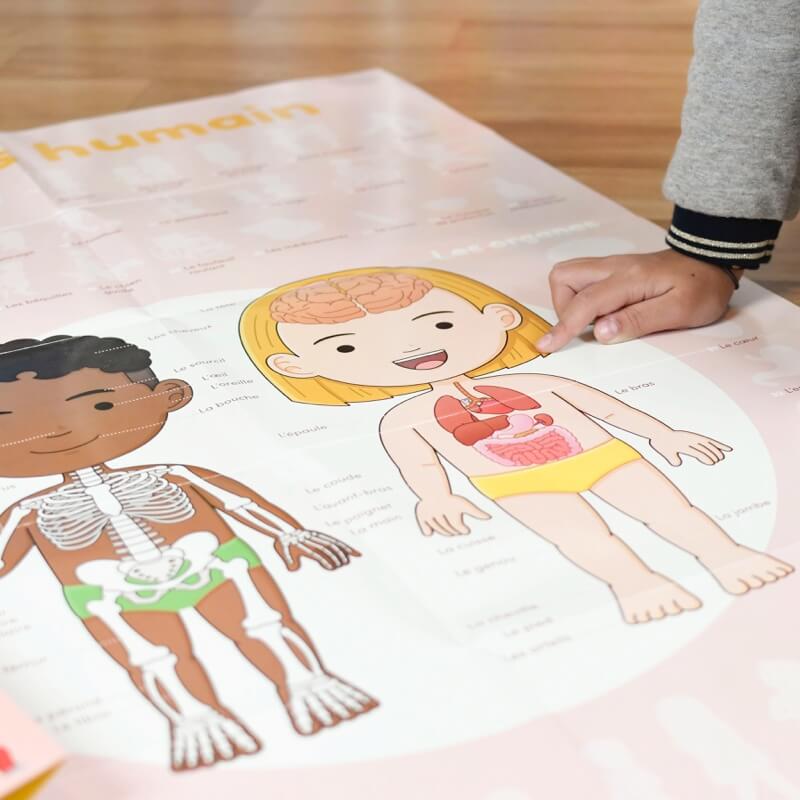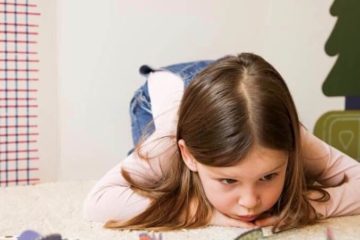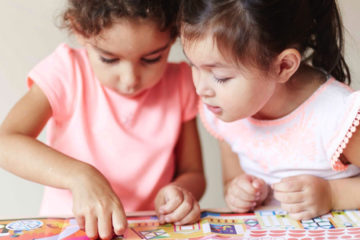There is a lot of talk today about the subject of children’s bodies. Recent events have brought this topic to the forefront of the media scene: epidemics and vaccines, good eating habits, the need for sports and nature, but also child protection against abuse and mistreatment, etc…
How can we help children feel comfortable in their bodies? How can we help them become aware that their body is a treasure to be protected?
As you may have noticed, young children are very interested in their bodies from an early age. For example, when young children start to talk, they quickly learn to name body parts: “Where are your ears? “Show me your belly! “How many nursery rhymes and children’s books deal with this subject? Thousands! And that’s a very good thing! Here’s why.
1- AUTONOMY: Knowing one’s body allows one to learn hygiene and promotes autonomy
What child is not fascinated by his poo and proud to no longer wear a diaper? Hygiene is one of the very first opportunities to become self-sufficient. Identifying the right time to go to the bathroom, washing your hands by yourself, blowing your nose like a grown-up, washing your teeth with real toothpaste… The list goes on and on. Every apprenticeship is a small victory and an opportunity for pride. There is an amazing book, published by Editions Tourbillon, which accompanies the child in each of these learning experiences. Discover it here.
2- MOTRICITY: training your endurance and dexterity will eventually allow you to feel more comfortable in your body.
The lockdown has shown us how much the children suffer from being locked up. Exercising one’s motor skills promotes well-being and is the key to a well-balanced life. It’s not for nothing that teachers organize entire spaces dedicated to motor skills and spend so much time there! At home, it is also fairly easy to organize a course that alternates games: crawling, jumping, sneaking, climbing, walking on a wire laid on the ground, rolling …
Our favorite of the moment: a rainbow comet to launch. Magical!
3- CURIOSITY: Knowledge of the body is an exciting first approach to the sciences.
It’s simple: the field of observation is before our eyes, and there are a thousand questions to ask about the body: why do we sleep? Why are we blushing? Why are we hungry? What is being sick? Have a disability? Why are there different skin colors? So many simple questions that open up huge horizons. Because a little humor doesn’t hurt, we recommend this book (to be discovered here) which will delight children by tackling the subject of fart, burps and other curiosities of the body. This allows us to tackle the subject of microbes, digestion and many other exciting things.
Click hereto discover our giant poster and its 48 repositionable stickers, to discover the human body. An excellent tool to start discussions on all subjects that affect the body: the five senses, nutrition, sports, organs, skeleton, ages of life…
4- WELL-BEING: Listening to your body and knowing how to take care of it is essential for your well-being.
Today we know that having a good diet, for example, can be learned. We can learn to distinguish between our needs and desires, satisfying the former and mastering the latter. At school, the children deal with these subjects in a progressive way. If in kindergarten we name the body parts, in primary school we talk about food balance.
5- EMOTIONS: Knowing one’s body allows us to understand the emotions we are going through and to live them better.
What happens when you are angry? Why can’t we stop crying sometimes? Emotions are a very broad subject. It is approached in a very playful way by the young French brand, Pipouette, which has imagined a companion of emotions, for children to live and explore their emotions.
6- RESPECT: Respecting one’s body can be discussed and learned!
For older children, from about 7-8 years old, the excellent magazine Astrapi offers us a small booklet to download here, to address the issue of child sexual abuse. There are comics and examples to discuss this delicate subject with your family. A very nice initiative that allows parents to speak without taboo, with the right words. We recommend it to you!



